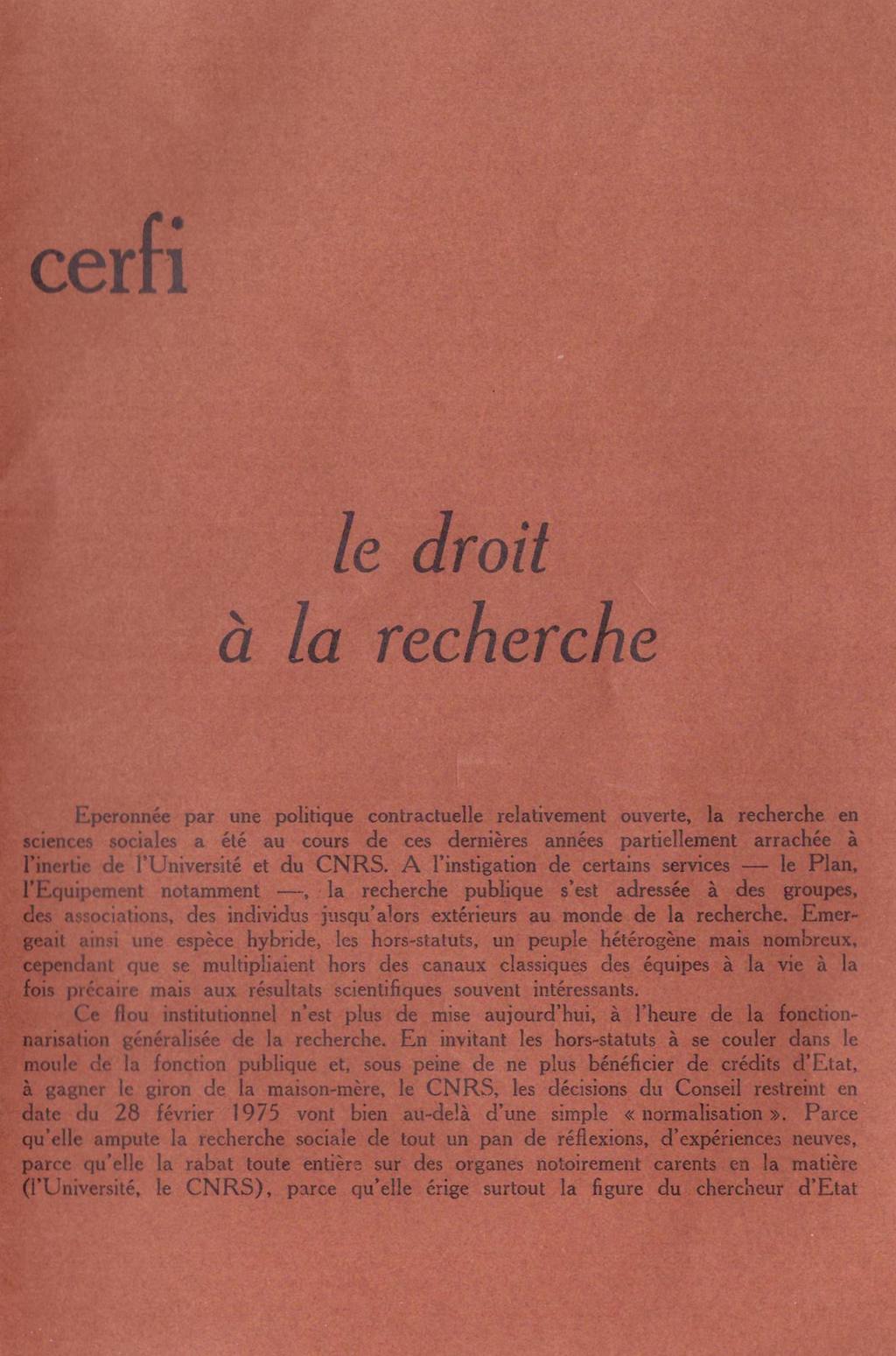The Right to Research – Event in June
It’s been a while since we last posted a blog so a few quick updates before the Right to Research Event news.
Patrick has written an article on the background to the production of issue 13 of Recherches with a specific focus on the tensions between the broadly Marxist paradigm of leftist militancy and the emergence of a Nietzschean ethos. The paper is under review and we aim to post more about this soon.
We have also discussed a work-in-progress piece of writing on method on ‘how to do a pragmatic genealogy of concepts’.
We are planning a research trip to Paris in May for archival research and possibly interviews. The schedule of this will depend our family lives and we are also attentive to France’s pension protest and strike plans.
Now for the Right to Research. The event is part of a research stream I proposed inspired by the “Right to Research” manifesto, written in 1975, by CERFI members. The manifesto was a reaction to the French State's termination of 'research by contract' in the social sciences. Thereafter state funding for research could be granted only to those with a formal academic affiliation, either as part of the CNRS (the French National Centre for Scientific Research) or a University.
Although the right to research manifesto is not immediately related to Recherches 13, which is the main focus of our project, there is continuity between the issues raised in the “militant interventions” penned by Anne Querrien, Françoise Lévy, Marie-Thérèse Vernet-Straggiotti and in François Fourquet and Lion Murard’s preface, and the manner these are raised, with the 1975’s manifesto and with our own research interests in La Toupie Folle.
The publications of these ‘interventions’ in Recherches 13 intercalate the theoretical and historical part of the research and allow looking at the genealogy group as a living subject of research. Members of the genealogy research group use these discussions to talk about the life of the research, the militant desire, and to frontally raise the various libidinal conditions of the research process. Through these, we encounter the subject of research, not necessarily in the manner of the researcher’s gaze or situatedness, but in the manner of the material and libidinal conditions of research production.
These ‘interventions’, if read together with the historical and theoretical research, inform the pragmatics of the latter and the two together form the work that interests us in La Toupie Folle. The pragmatic genealogy of concepts would require an exercise of this kind, an exercise of seeing theoretical production at the light of its conditions of research.
This is also our inspiration behind the blog feature in La Toupie Folle project, where we might refer to issues of money, work, ethics, life that impact our research. Purposely, and as a research practice, we have tried not to obliterate these from our reflections and our public output.
The “Right to Research” manifesto argued that putting an end to the financial autonomy of groups would end the possibility of self-management and experimentation with a variety of forms of work, research, and styles needed for social research. Moreover, the professionalization of research would come with a focus on the (professional) researcher as an individual to the detriment of collective research experimentation.
More importantly, and something we haven’t engaged with yet here, the manifesto speaks primarily of the value to guarantee conditions of existence for ‘non-professionalised research’ and for those who were usually treated as objects of research to become subjects of research.
With the manifesto as a starting point, the “Right to Research” event will take place on 10th June in May Day Rooms. It will be a meeting with research collectives, associations, foundations, and varied groupings engaged in research and experimentation, and individual researchers to share their work, challenges, modes of organisation and management, funding strategies and research ethos to re-think what the right to research might mean today.
In the morning, each organisation will deliver a brief presentation about themselves and in the afternoon, we will with a collective discussion on topics such as the professionalization of research, financial self-management, organizational processes and the articulation between social production and theoretical production.
I thank Olivier Quérouil, member of CERFI, who first drew my attention to the manifesto and send it to me. I was immediately drawn to it, particularly being an independent researcher myself!
Patrick and myself have translated the manifesto. This is a picture of the beautiful cover.
We will post more about the event and participants soon and also share a link to Eventbrite.

Mentioned in:
There are no notes linking to this note.